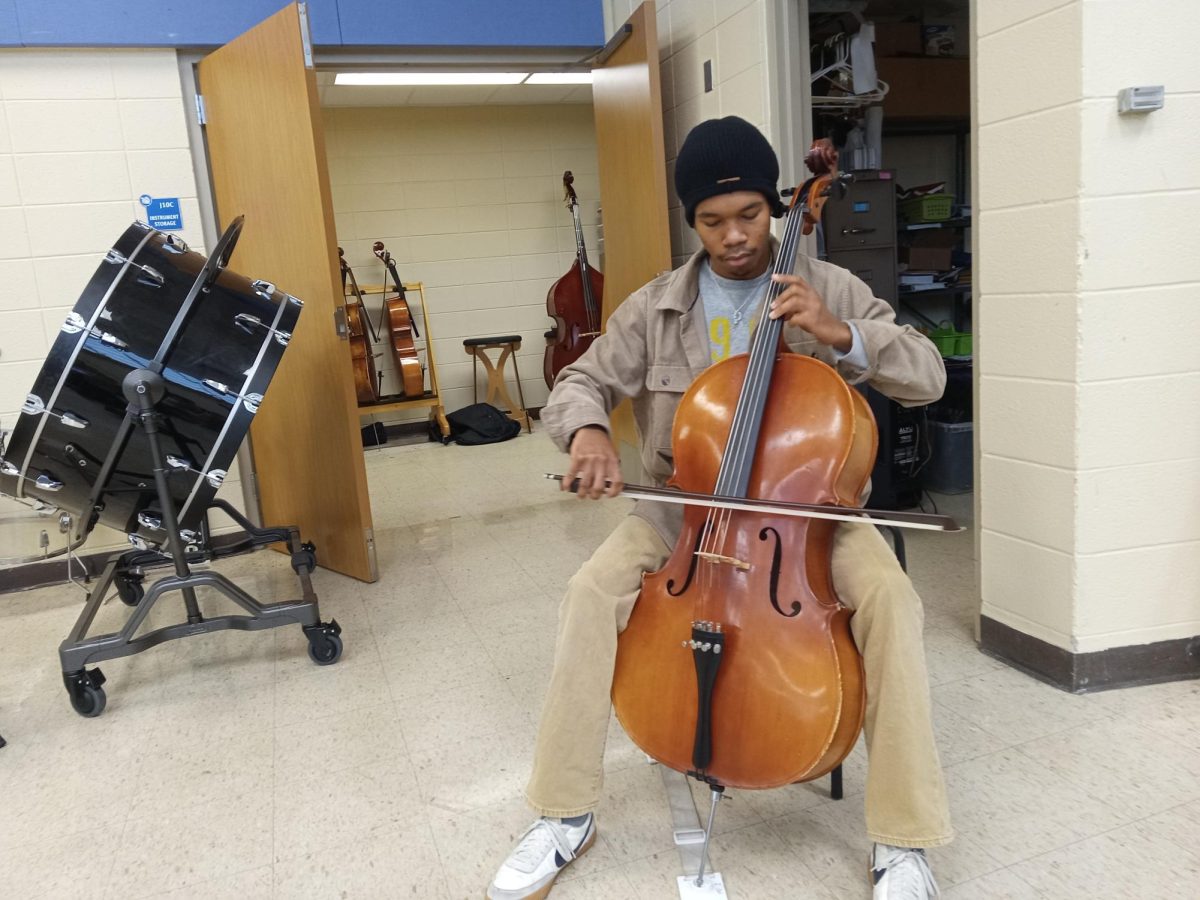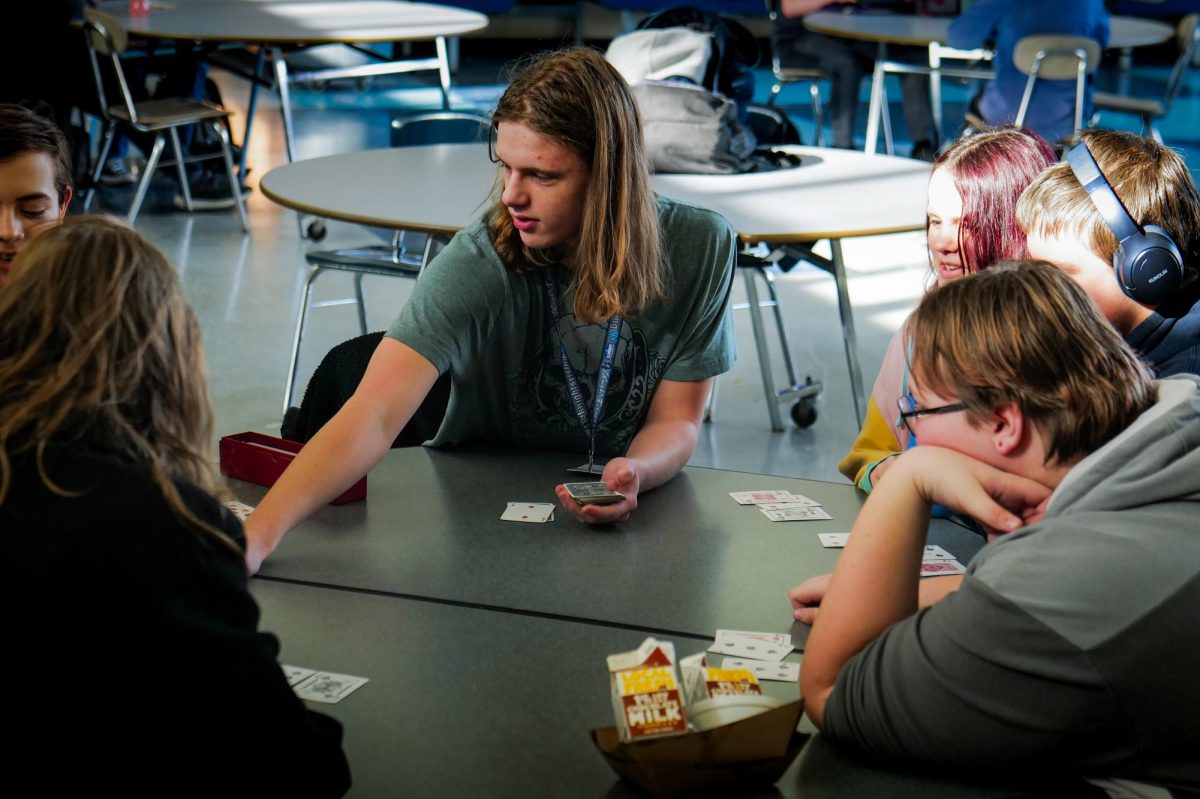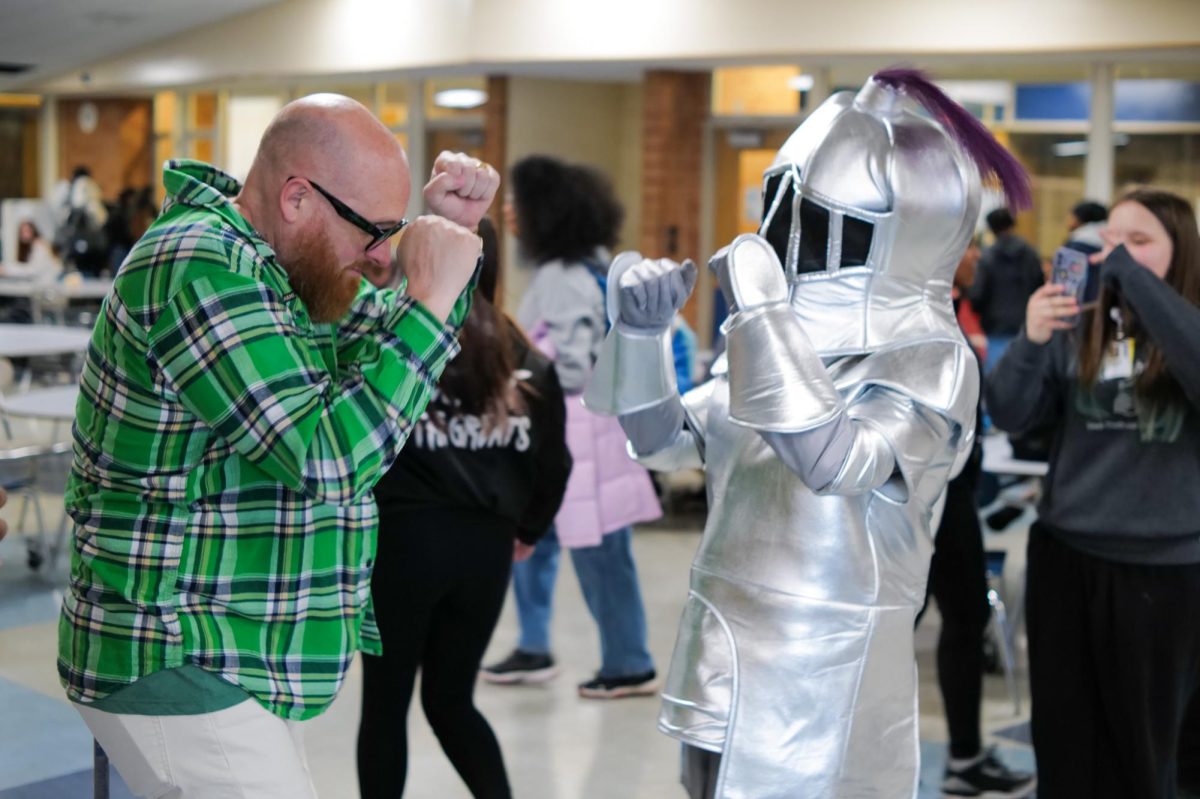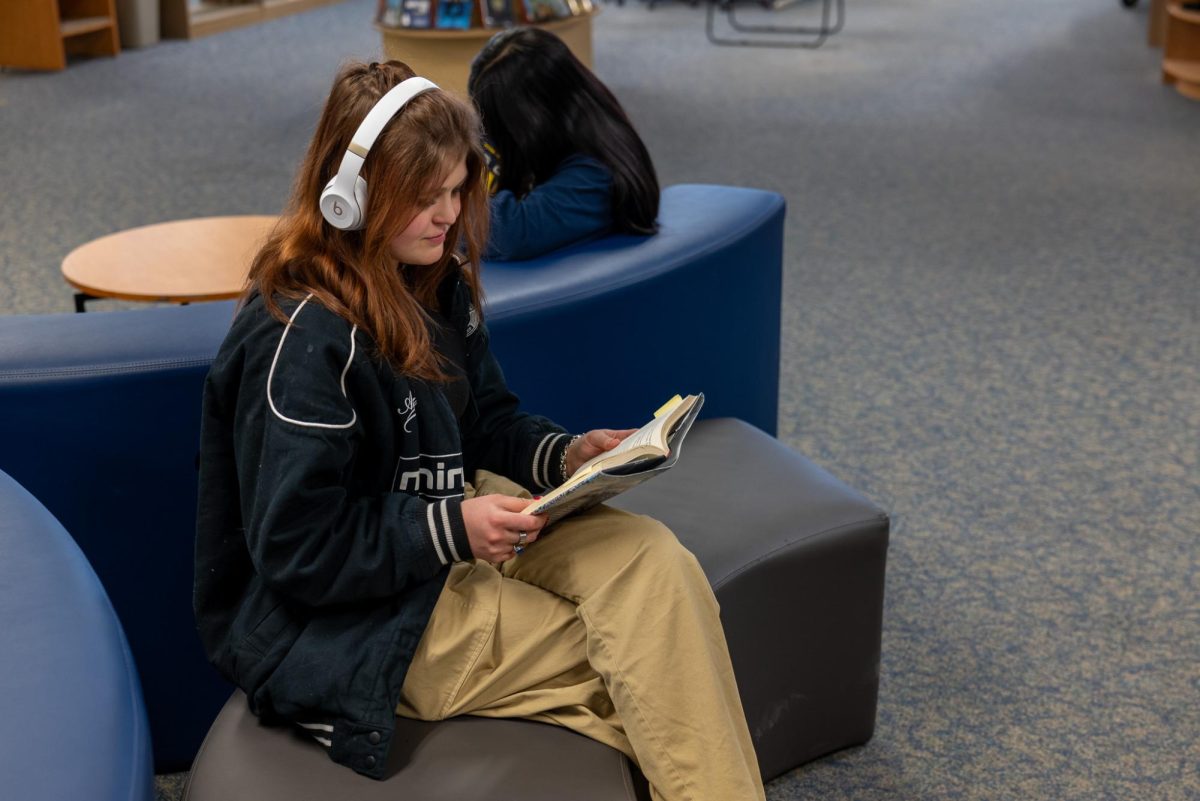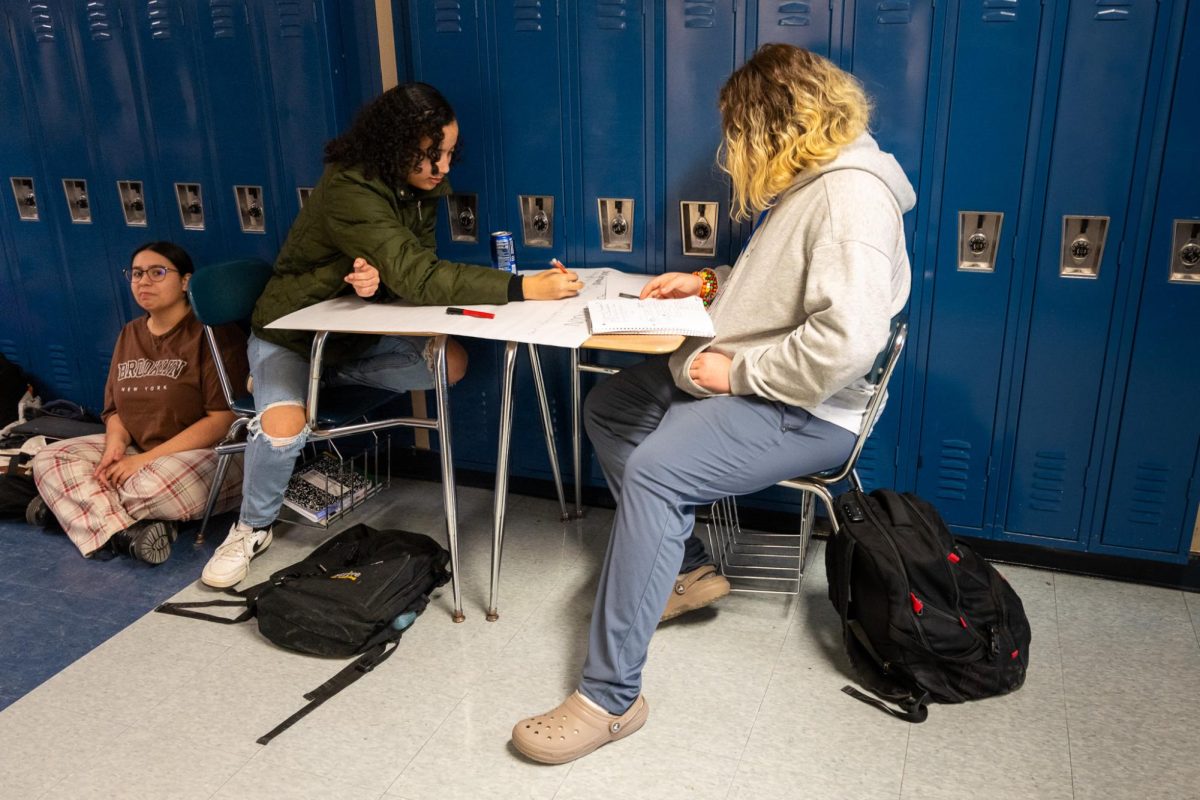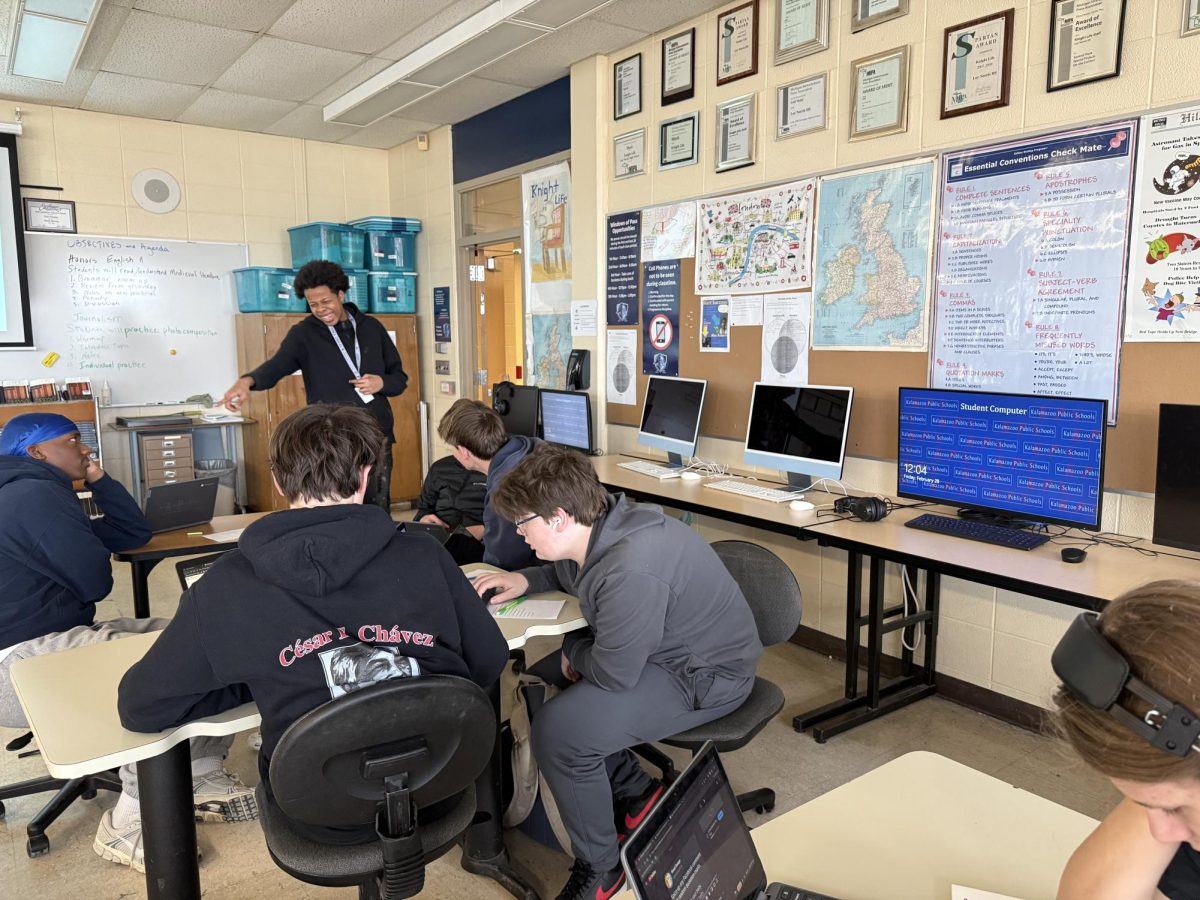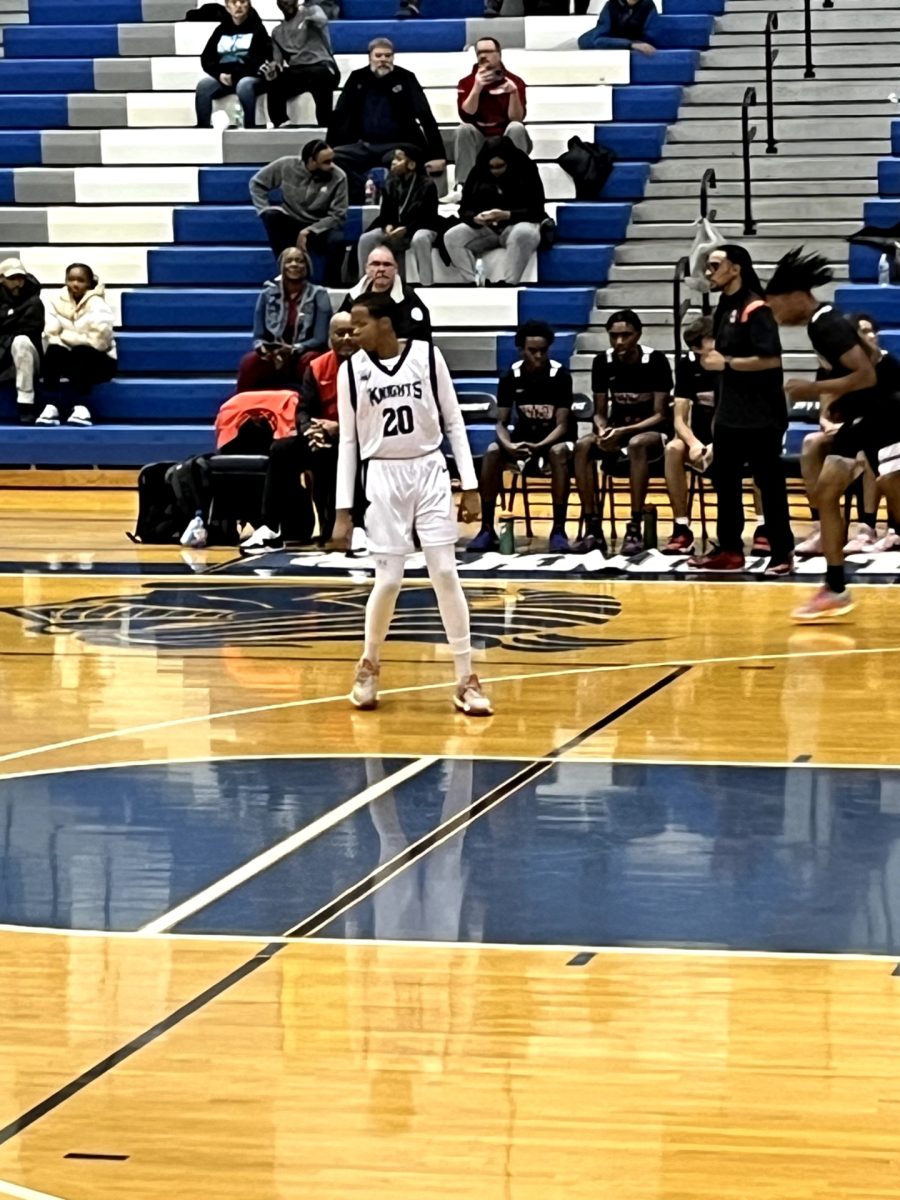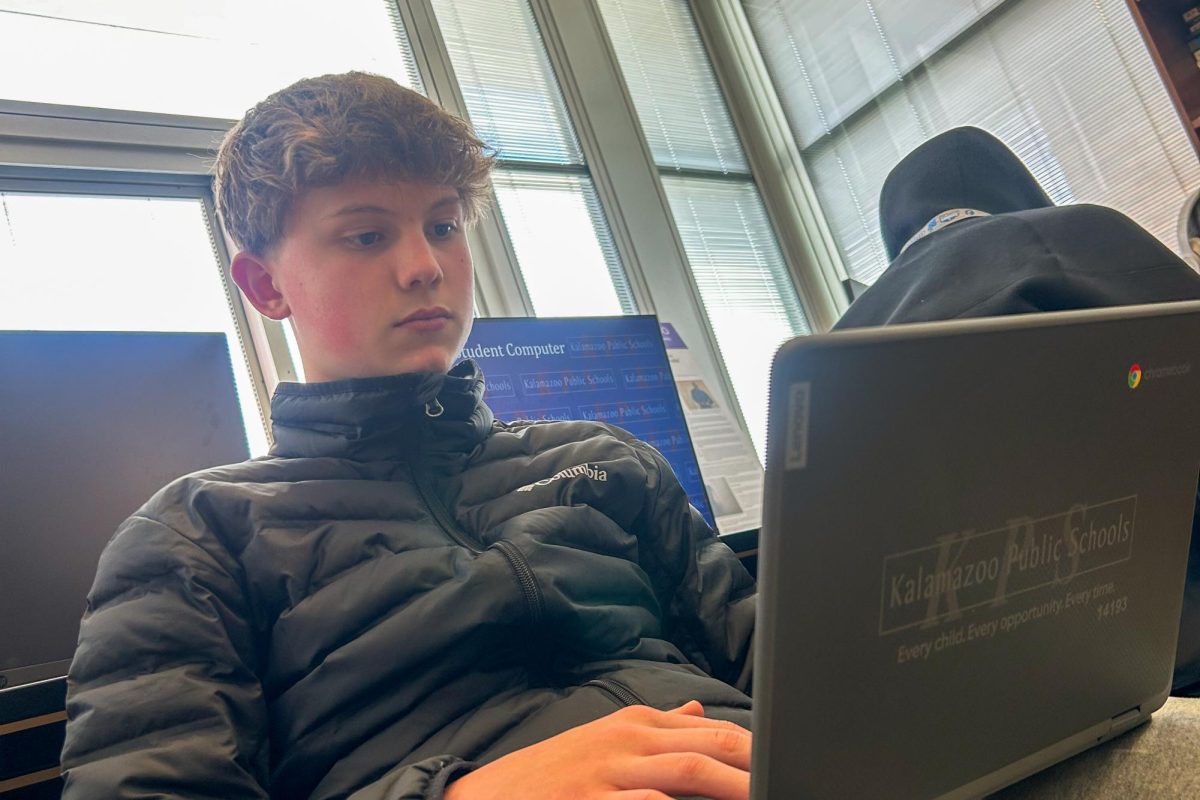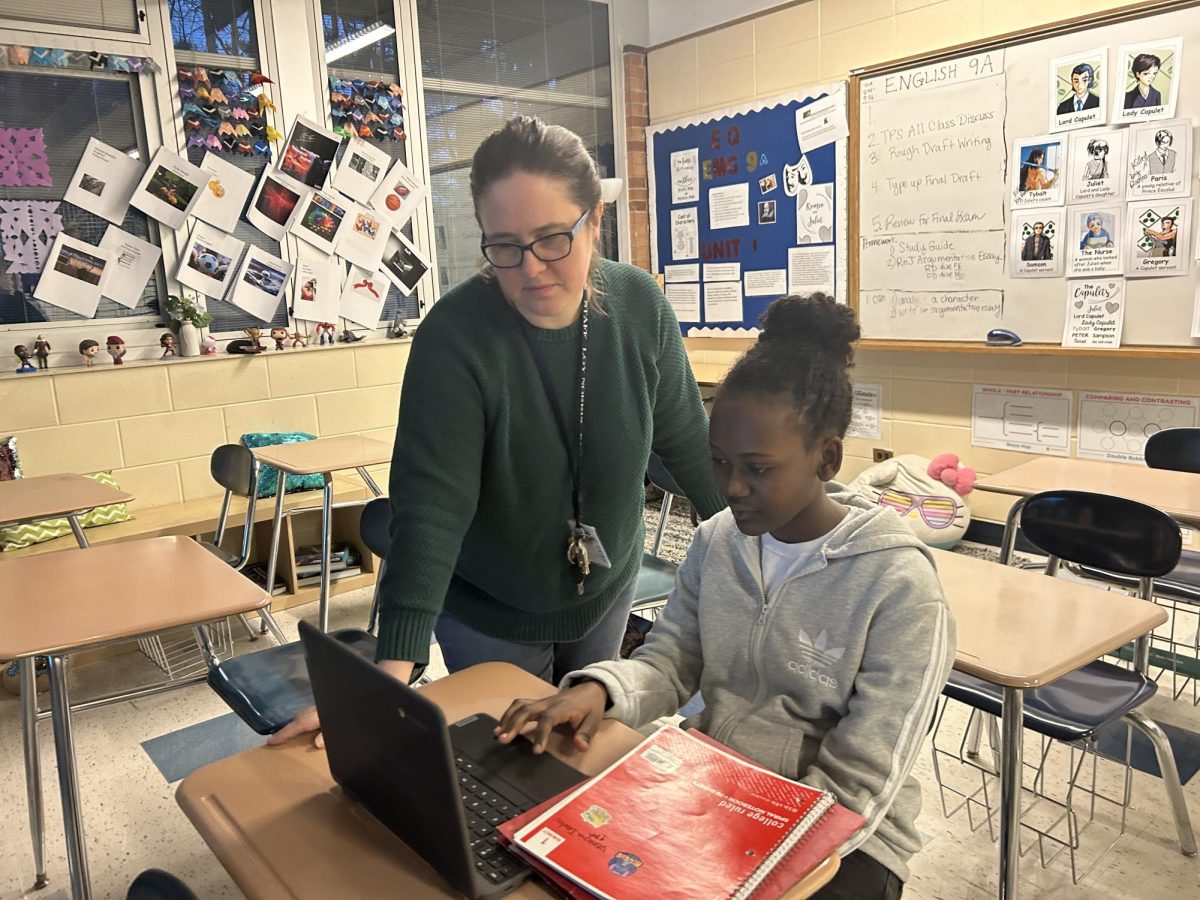Junior Cory Roberts has been playing the cello since the fifth grade. He began learning the instrument while at Prairie Ridge Elementary School, and continued playing through middle school with the Kids in Tune program. However, after his freshman year of high school, Roberts decided to leave the school orchestra behind. He’s not alone: many student musicians have made similar choices.
Orchestra is a year-round elective class that counts as a visual and performing arts credit. Some students play in orchestra through all four years of high school, while other students have chosen to walk away in favor of other classes.
Being in orchestra has many benefits beyond simply improving as a player, as orchestra teacher Denis Shebukhov can attest to.
“Orchestra is not only about the notes you play, it’s so much more than that,” said Shebukhov. “You’re using right and left brain, coordination, listening, focusing. We have pieces that last about four or five minutes, and you have to focus for those five minutes.”
Shebukhov thinks that these skills that orchestra requires make it a unique experience in high school.
According to Ken Dattmore’s article, Five Benefits of Joining School Orchestra, students who play in a school orchestra will learn better teamwork skills, how to deal with responsibility and will have improved cognition.
Despite this, some students choose other classes over orchestra. Orchestra is only available during third period, and other elective classes, such as Yearbook and Advanced Journalism, are exclusively third period. Some Career & Technical Education (CTE) or Education for the Arts (EFA) classes also take up this time.
Junior Yamilet Brito-Arevalo prioritized her CTE class and enrollment in Early-Middle College over orchestra. Despite leaving the orchestra program, she still plays violin occasionally at home.
“Since orchestra is a year long, it takes a lot of that time away,” said Brito-Arevalo, who played violin during her freshman year.
Roberts also wanted to pursue other opportunities.
“During third hour, without orchestra, I was able to take forensic science, creative writing, and a lot of classes that are strictly during third hour, with teachers that I wouldn’t have been able to if I was still in orchestra,” said Roberts, who has continued his love of cello by playing with the Kalamazoo Junior Symphony Orchestra.
No matter if a student is a part of the school orchestra or not, Shebukhov still believes it’s important that they stay dedicated to their instrument.
“Every day, I remind students that if you don’t practice music, music will not be easy for you and music will not give you joy,” said Shebukhov.


